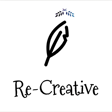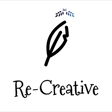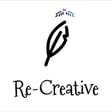
Bruce Sterling and the Versifier
Joe and Mark are joined by the famed cyberpunk author Bruce Sterling, from his studio in Torino (Turin), Italy.
"I don't like doing the same thing over," Bruce says. "So, I don't write trilogies or sequels. I'm writing a lot of short fiction. I do some lecturing and consulting. I'm also the art director of an arts festival here in Turin, which is called Share Festival."
One of Bruce's projects is to re-create a working model of The Versifier, which was originally a 1959 short story by Primo Levi. In the story, a poet is offered the chance to produce more poetry faster with a machine AI. Bruce is assembling a polystyrene model which is the first step to creating a working replica.
What follows is a deep and fascinating conversation that also digs into the work of kinetic sculptor Alexander Calder, AI technology, and the human need to create art.
For more information, check out the show notes for this episode.
Re-Creative is produced by Donovan Street Press Inc. in association with MonkeyJoy Press.
Contact us at joemahoney@donovanstreetpress.com






